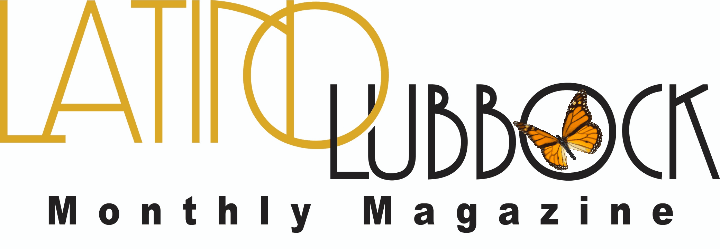A Full and Accurate Count of Latinos in Census 2020 is Important to 93 Percent of Latino Voters
- Oct 3, 2018
- 4 min read

WASHINGTON, D.C. – Five weeks before Latino voters head to the polls for the 2018 midterm elections, the National Association of Latino Elected and Appointed Officials (NALEO) Educational Fund and Latino Decisions released the results of the fifth wave of its ten-week national tracking poll of Latino registered voters. Results from the fifth week of the NALEO Educational Fund/Latino Decisions National Weekly Political Tracking Poll offer exclusive insights into the Latino electorate this year, including opinions on whether U.S. Commerce Secretary Wilbur Ross should testify as part of the lawsuit over the addition of a census citizenship question and their level of trust in the Administration to keep confidential the citizenship information collected in Census 2020, the importance of a full and accurate count of Latinos in Census 2020, Supreme Court nominee Brett Kavanaugh favorability trends, and more. Each week a fresh sample of 250 registered voters will be added and combined with the previous 250 interviews to create a rolling average, consistent with most tracking polls methodology. This week’s poll of Latino registered voters nationwide was conducted by Latino Decisions from September 19 – October 1, 2018 (with a margin of error of 4.4 percent). “These results show that all Latinos, including those who are U.S. Citizens and actively engaged in our political process, are deeply troubled by the Trump Administration’s intentions and actions around Census 2020,” stated Arturo Vargas, NALEO Educational Fund chief executive officer. “Despite it being illegal for the Census Bureau to share personal information collected during Census 2020, the Latino community does not trust that this Administration will refrain from sharing confidential information about citizenship status with agencies like ICE. If the citizenship question is not removed, we run the risk of an historic undercount in Census 2020.” “Overwhelmingly Latinos think it’s important for the census to get an accurate count in 2020,” stated David Ayon, Senior Analyst at Latino Decisions. “But our survey of Latino voters - who are all U.S. citizens - finds strong and consistent evidence of widespread fear over the new citizenship question added to the 2020 Census. Big majorities of Latino voters don’t trust the Trump administration to protect the citizenship information of people in their community. The implication is that there is going to be a greater net undercount of Latinos if the citizenship question is included.” Key findings include:
Census 2020 is significant to Latino voters. The nation’s upcoming decennial count is critical to the Latino electorate, with 93 percent stating that it is important for the Census Bureau to implement a complete and accurate count of the entire Latino population and that nobody is left out.
There is deep distrust that the Trump Administration will keep confidential the citizenship status information they collect in Census 2020. Despite being against the law for the Census Bureau to share personal information, more than two-thirds (68 percent) of Latino registered voters, who are U.S. Citizens, do not trust the Trump Administration to keep confidential the private information it collects, including the citizenship status of immigrants.
Latino voters believe citizenship status and other private information will be shared with federal agencies like ICE. With the addition of a citizenship question on the 2020 census, more than three-fourths (79 percent) of Latino registered voters are concerned that census answers about people’s citizenship status could be shared with other agencies such as Immigration and Customs Enforcement (ICE). Results show that concern for mixed-status households is high when it comes to Census 2020.
Support for Secretary Ross to testify as part of the lawsuit opposing the citizenship question addition is high. More than three-fourths of Latino registered voters think Secretary Ross should turn over all memos and emails related to the citizenship question, and testify as part of the order from Judge Jesse Furman of the U.S. District Court for the Southern District of New York.
Shift to filling out the Census 2020 form online is met with mixed feelings. Only slightly more than half of the Latino voters polled (53 percent) felt comfortable sending their household information for Census 2020 to the Federal Government through the Internet, with the remaining stating they were not.
Supreme Court Nominee Brett Kavanaugh’s favorability ratings continue to decline. The fifth wave of the poll results reveal that the number of Latino registered voters who hold unfavorable views of Kavanaugh is growing, increasing from 38 percent in week three to 51 percent in week five.
“As the Kavanaugh nomination drags out, Latino voters continue to report increasingly negative views towards Kavanaugh, and there are spillover effects to the Republican Party as a whole,” said Matt Barreto, co-founder of Latino Decisions and Professor at UCLA. “The big question is whether or not the Democratic Party will capitalize on this with increased outreach and mobilization or not?” As we near Election 2018, NALEO Educational Fund will continue its efforts to ensure that Latino voters have the information necessary to make their voices heard at the ballot box. These efforts include operating our toll-free bilingual hotline 1-888-VE-Y-VOTA (1-888-839-8682) that provides Latino voters with information on every aspect of the electoral process, from registering to vote, to voter ID requirements, to finding their polling place. On Election Day, the hotline will be connected to the Election Protection efforts and 1-866-OUR-VOTE, offering Latino voters nationwide a bilingual resource to get assistance and report any problems they may experience at the polls.
To view the methodology and full toplines for week five of the ten-week tracking poll, visit http://www.latinodecisions.com/index.php/download_file/767/. To view the methodology and full toplines for week five of the ten-week tracking poll, visit


























Comments